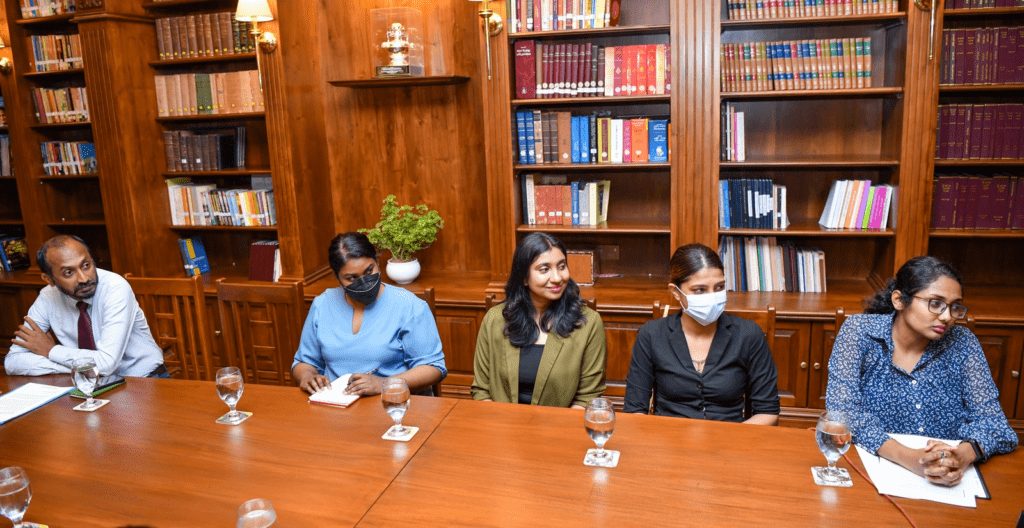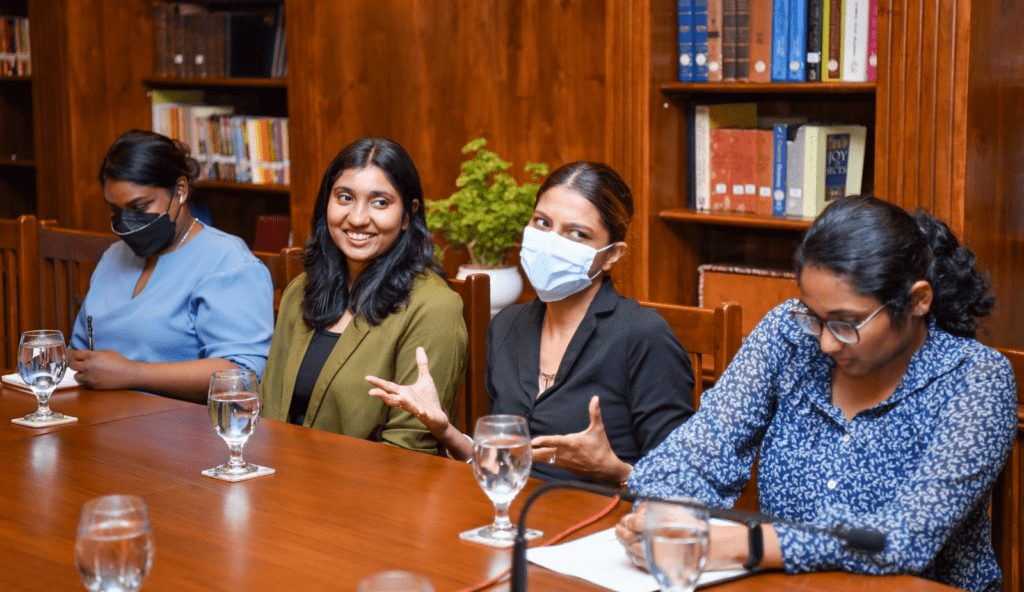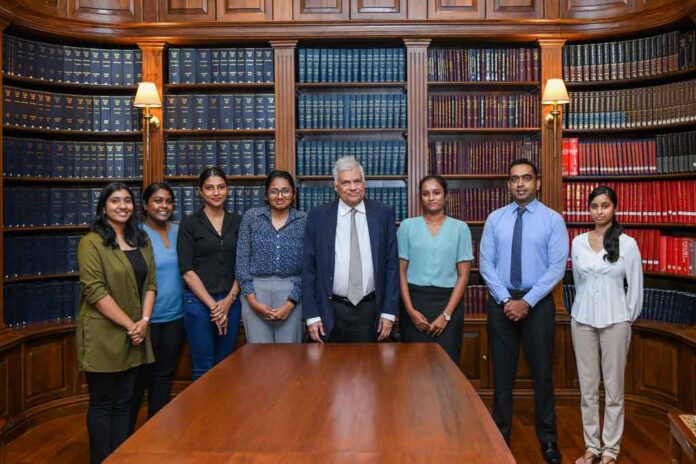Colombo (LNW): On February 16th, President Ranil Wickremesinghe met with a group of youth to discuss his policy statement and the government’s plans for the country’s future. The group of young people expressed their views on the government’s policies in a newspaper article and the President had invited them over for a follow-up discussion along with the two young journalists, Anoushka Jayasuriya and Shannon Salgadoe who had written the article. During the discussion, they had expressed what they expect from the government, and discussed a range of issues with the President.
One of the major topics discussed was the shortcomings in the education sector, with the youth group highlighting the need for proper mental health education at the school level and a proper education mechanism for the inclusion of the differently-abled. They asked, “Will your government get some real mental health education in Sri Lanka, in schools especially?”
The President agreed that attention paid to mental health in schools was insufficient and acknowledged that much needs to be done with regard to those with mental health issues and those who are differently-abled. He noted, however, that one of the main issues facing the country is the lack of trained personnel in this field.
The youth group also brought up the issue of taxes, adding that while taxes are not a novel concept in many other countries, it is not so in Sri Lanka.
The President explained that the government budget can be examined by the Parliament to ensure they are adhering to it. He noted that there are many committees to examine the budget, such as the Committee on Public Enterprises, Committee on Public Accounts, and Public Finance Committee. He added that they are also bringing in the Parliamentary Budget Office Bill to strengthen the process further.
They questioned, “Transparency is a big question with the new taxes. People are feeling it because suddenly they are forced to pay a huge portion of their salary.”
“The transparency is there because in a big budget we have line items. If you read it, you can never say what it is. It’s in any budget, it’s the parliament that ensures the money is spent wisely, and it takes 2 to 3 years. So the parliament must exercise the powers now. Last time, I think the Opposition didn’t fill their quota of Chairman in the oversight committees. So all that went by board, even this time for selection, they hadn’t come to Parliament to the selection committee. But I think the remaining people just got some opposition names into it. So that is where the transparency comes in and nowhere else. You can ask them as to why you spend and all,” the President explained.
The President also discussed the country’s economic situation and the challenges the government faces, noting that Sri Lanka was in an abnormal economic situation and had to restructure debts to get out of it. He added that the government had to cut down on some expenditure and find money in other areas, such as raising the electricity tariff. The President acknowledged that it is not an easy job, but someone has to do it.
“Sri Lanka was in a very abnormal economic situation, and we had to get out of it. But to get out of it, we have to restructure debts. To restructure the debts we had to cut down our expenditure or find money for it. In some areas we have cut down, but for other areas, we have to find money. Like yesterday we had to raise the electricity tariff, but then there is a Rs. 230 billion loss. So if you don’t raise it, you won’t have power. We are all paying for the past sins. This is how we get out of it fast and this is what we have to do. I don’t think there’s any other way out.
It’s not a job, that anyone would like to do, but someone has to do it.”
The youth group also raised the issue of individual accountability and suggested that parliamentarians should have some degree of education. The President agreed but noted that it will take some time for this to happen. He explained that many younger people either have a degree or business experience and it is up to the voters to choose the type of member they want to elect.
“When the individual accountability is concerned, the members of Parliament, well you have a system where you can give a preference. If you don’t want any of them, you vote for the party and you can choose whom you want. However, it’s a very expensive procedure. So I want to appoint Committee to look into how we can have a better system of elections without spending all the money that we spend.
In a parliamentary election, the bulk of the money is spent by the individual candidates, not by the parties.”
The youth also asked the President “Why does everyone shout in parliament? Do you think they shout to avoid responding to questions posed to them?”
In response, the President said that it is done to get media attention and is not appropriate. He noted that he has seen similar behaviour in other countries and that it is not unique to Sri Lanka.
“That is bad. Now it’s done to get media attention. There are people when they argue, may shout at each other. But, not like this, they just keep shouting. Now, it’s bad and setting a bad example to the country. There is a price. When we look at the UK, it is not so. There are times when people cheer but this is just being done. I think we have to bring some control over it,” he added.
Overall, the meeting was an opportunity for the President to hear the views of the youth and discuss the government’s plans for the future. The youth group expressed their concerns and ideas, and the President listened and responded to their questions and comments.



